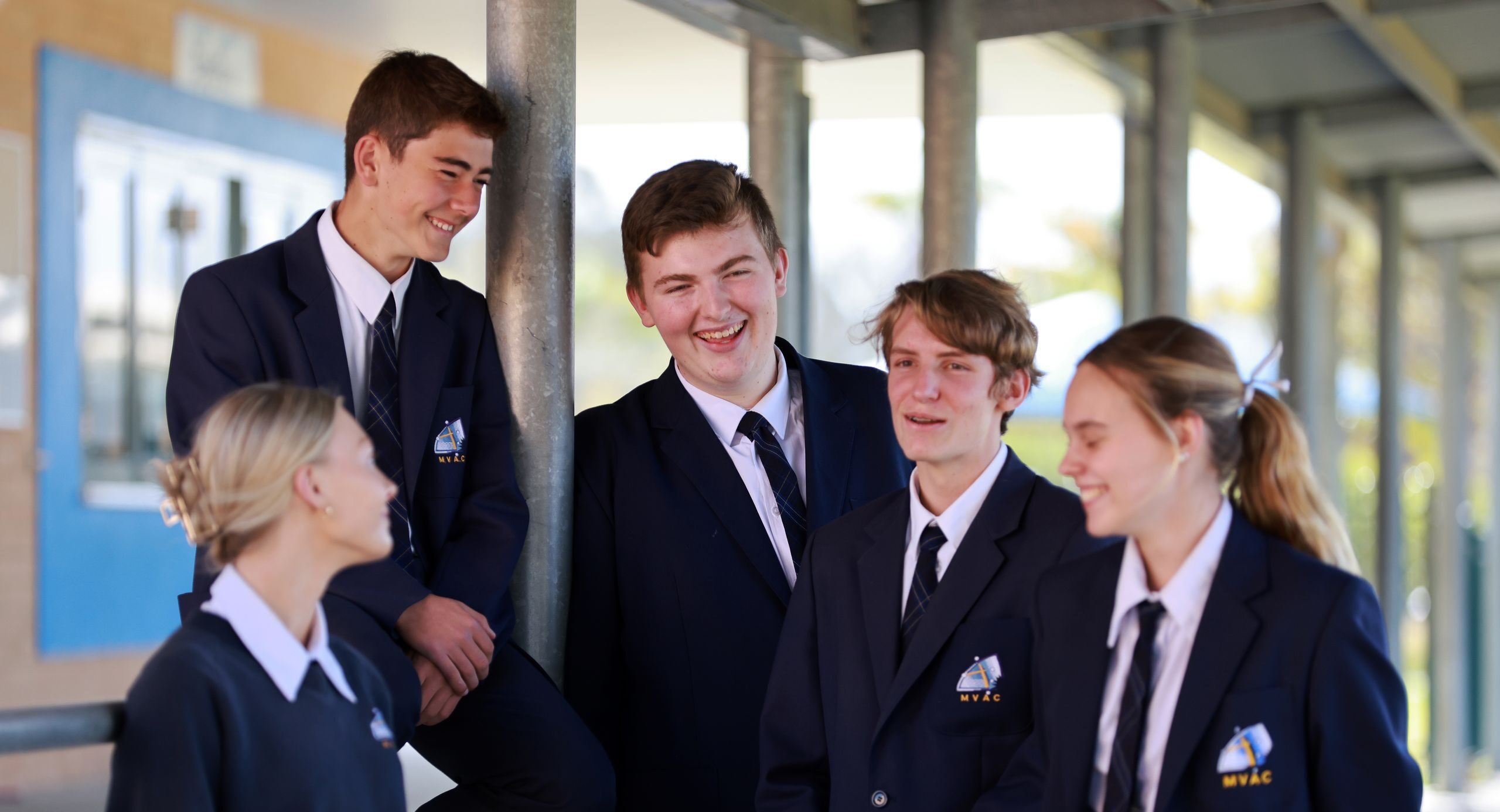Growth through perseverance, pushing past what is expected to achieve their personal best.
Senior School Wellbeing

MVAC values the importance of every student’s mental and emotional wellbeing.
For us to provide a safe and inclusive educational environment we will continue to support to our students for them to thrive.
We believe in empowering our students and families to be the best they can be, and support everyone within to flourish because of what we do, inspired by the way of Jesus.
School is about more than just literacy and numeracy. The emotional and social aspects of gathering together to learn play a vital role in a child’s development. Compassion and care run deep through the Christian faith, and as an Anglican school we aim to support students in their personal and spiritual development.
At Manning Valley Anglican College, we are blessed with caring and compassionate staff who work closely together to support the happiness and wellbeing of all students. Students have access to counselling services through the College to work with students and families on a more personal level. Mr Greg Anderson provides pastoral care to our students and their families, working closely with the teaching staff to nurture the wellbeing of our students.
Our Learning Support Team monitors student achievement and will implement intervention programs when necessary. Our support staff work with small groups of students and also provide support in the classroom.
Communicating with your child’s teacher is essential when issues arise academically, socially or personally. Providing teachers with this information allows them to cater for your child’s needs or seek further support to improve their wellbeing.
The Journey
The Journey is a fortnightly timetabled program delivered by Pastoral Care teachers under the supervision of Year Coordinators. The program focuses on developing personal skills and attributes to support their ‘journey’ through senior school.
The content covered in ‘The Journey’ is a blend of small group activities, pastoral class-based activities and larger year group sessions.
The Journey is developed in direct consultation with the PDHPE staff to ensure that content covered is not repetitive but is consistent in language and topics. The reinforcing of PDHPE outcomes can assist in students understanding sensitive and relevant information to their development, choices
and mental health. Topics such as resilience, mental health, exam preparation, peer support, growth mindset, careers, study stress and more are among the areas explored during The Journey lessons.
The morning is the ideal time for students to prepare themselves for a day of learning, engagement and preparation. To support students on their path of empowerment, the morning sessions allows for personal reflection, daily preparation and the setting of targets and goals. We provide a “Wellbeing Journal” for students to use during these session and it is expected to be with them for each session.
Student Representative Council
Student investment and involvement is essential in providing them with a voice that allows for a sense of ownership in the College. Student Representatives are nominated from each pastoral group.
The SRC is chaired by a President who ‘facilitates’ discussions developed by the student body, as well as coordinating activities and fundraisers.
The SRC have a presence at each Chapel and Assembly under the title ‘Student Voice’. This section of the Assembly allows for the SRC President, or their representative to discuss any issues, fundraisers or areas relating directly to student life.
The SRC meet fortnightly to discuss and raise concerns or areas of interest. An anonymous suggestion box is placed in the ‘Wellbeing Hub’ for students to offer suggestions, concerns or topics of interest for SRC consideration. The opportunity to make anonymous suggestions means that students who may not always be comfortable in using their voice, are also given an opportunity to offer suggestions and ideas.
For more information about our other wellbeing programs please view our Student wellbeing programs page.